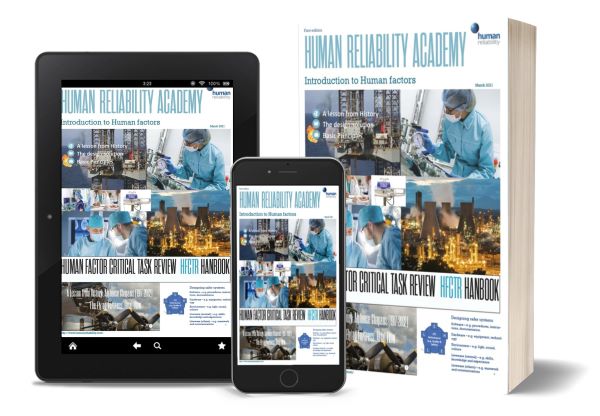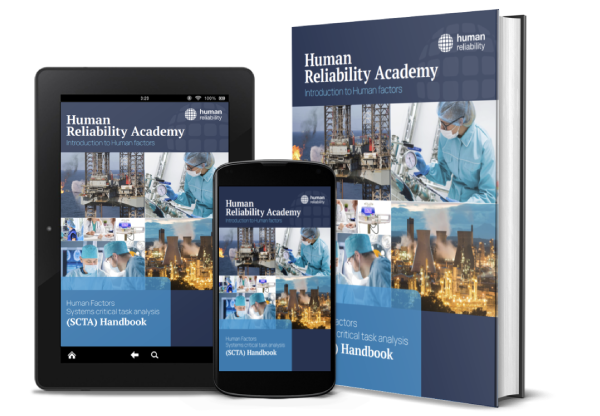A Human Factors approach to critical communications is essential to optimize information exchange, prevent errors, and enhance overall performance.
A Human Factors approach to critical communications is essential to optimize information exchange, prevent errors, and enhance overall performance.
Effective communication is at the heart of every successful operation, ensuring coordination, collaboration, and safety.
In high-risk industries and sectors where critical decisions are made, such as COMAH-regulated sites, air traffic control, healthcare, and transport, the significance of critical communications cannot be overstated.


Effective communication is at the heart of every successful operation, ensuring coordination, collaboration, and safety.
In high-risk industries and sectors where critical decisions are made, such as COMAH-regulated sites, air traffic control, healthcare, and transport, the significance of critical communications cannot be overstated.

COMAH-regulated sites involve the handling of hazardous substances, where safety is of utmost importance. Critical communications play a crucial role in ensuring effective shift handover and the use of Permit to Work systems. A Human Factors approach emphasizes clear and concise communication, standardized protocols, and appropriate tools and technologies.
By addressing human factors considerations in critical communications, we reduce the risk of miscommunication, enhance situational awareness, and improve safety in COMAH-regulated environments.

COMAH-regulated sites involve the handling of hazardous substances, where safety is of utmost importance. Critical communications play a crucial role in ensuring effective shift handover and the use of Permit to Work systems. A Human Factors approach emphasizes clear and concise communication, standardized protocols, and appropriate tools and technologies.
By addressing human factors considerations in critical communications, we reduce the risk of miscommunication, enhance situational awareness, and improve safety in COMAH-regulated environments.
Air traffic control is a highly dynamic and complex environment that relies heavily on precise and timely communications. Effective coordination among air traffic controllers, pilots, and other stakeholders is critical for safe and efficient air operations.
Human Factors considerations in critical communications for air traffic control involve the design of communication systems, interfaces, and procedures that support clear and unambiguous exchanges of information.
By applying a Human Factors approach, we enhance communication clarity, reduce the risk of errors, and improve the overall efficiency of air traffic control operations.


Air traffic control is a highly dynamic and complex environment that relies heavily on precise and timely communications. Effective coordination among air traffic controllers, pilots, and other stakeholders is critical for safe and efficient air operations.
Human Factors considerations in critical communications for air traffic control involve the design of communication systems, interfaces, and procedures that support clear and unambiguous exchanges of information.
By applying a Human Factors approach, we enhance communication clarity, reduce the risk of errors, and improve the overall efficiency of air traffic control operations.

In the healthcare industry, effective communication among healthcare professionals is vital for patient safety and quality of care. Critical communications in healthcare involve conveying critical information, such as patient status, medications, and treatment plans, accurately and efficiently.
Human Factors principles in healthcare communication emphasize the importance of clear, standardized communication protocols, effective team coordination, and minimizing interruptions.
By employing a Human Factors approach, we optimize healthcare communication, reduce the risk of errors, and enhance patient safety.

In the healthcare industry, effective communication among healthcare professionals is vital for patient safety and quality of care. Critical communications in healthcare involve conveying critical information, such as patient status, medications, and treatment plans, accurately and efficiently.
Human Factors principles in healthcare communication emphasize the importance of clear, standardized communication protocols, effective team coordination, and minimizing interruptions.
By employing a Human Factors approach, we optimize healthcare communication, reduce the risk of errors, and enhance patient safety.
In the transport sector, where large-scale operations and complex logistics are involved, critical communications are essential for seamless coordination and safety. Whether it’s railway systems, maritime operations, or road transportation, effective communication among operators, controllers, and stakeholders is vital.
A Human Factors approach to critical communications in transport focuses on clear protocols, intuitive interfaces, and efficient information flow.
By optimizing communication systems and processes, we improve operational efficiency, prevent errors, and enhance safety across transport operations.


In the transport sector, where large-scale operations and complex logistics are involved, critical communications are essential for seamless coordination and safety. Whether it’s railway systems, maritime operations, or road transportation, effective communication among operators, controllers, and stakeholders is vital.
A Human Factors approach to critical communications in transport focuses on clear protocols, intuitive interfaces, and efficient information flow.
By optimizing communication systems and processes, we improve operational efficiency, prevent errors, and enhance safety across transport operations.

Human Reliability Associates understands the significance of critical communications in high-risk industries. Our specialized expertise in Human Factors allows us to deliver tailored solutions that optimize communication effectiveness, enhance safety, and improve operational efficiency.
Whether it’s COMAH-regulated sites, air traffic control, healthcare, or transport, our Human Factors approach ensures that critical communications are designed with human capabilities, limitations, and context in mind.

Human Reliability Associates understands the significance of critical communications in high-risk industries. Our specialized expertise in Human Factors allows us to deliver tailored solutions that optimize communication effectiveness, enhance safety, and improve operational efficiency.
Whether it’s COMAH-regulated sites, air traffic control, healthcare, or transport, our Human Factors approach ensures that critical communications are designed with human capabilities, limitations, and context in mind.
Vestibulum ante ipsum primis in faucibus orci luctus et ultrices posuere cubilia Curae; Sed aliquam, nisi quis porttitor congue, elit erat euismod orci, ac placerat dolor lectus quis orci. Phasellus consectetuer vestibulum elit.

This 30min FREE mini-course will introduce you to Human Factors and Critical Task Reviews. This paves the way for our other resources and services for proactive Human Factors risk management.

This short and engaging handbook provides a great overview of human Factors Critical Task Reviews (HFCTR) and how it helps people across sectors reduce error and improve human performance.
Get the latest newsletter by signing-up today





This free 30 minute mini-course will introduce you to Human Factors, and how critical task reviews are used to improve the quality and safety of tasks and processes across different industries.
It’s free, informative and you’ll even get a certificate of completion.


This short and engaging handbook provides a great overview of Human Factors Systems Critical Task Analysis (SCTA) and how it helps people across sectors reduce error and improve human performance.
SCTA can help keep people safe and delivers value.